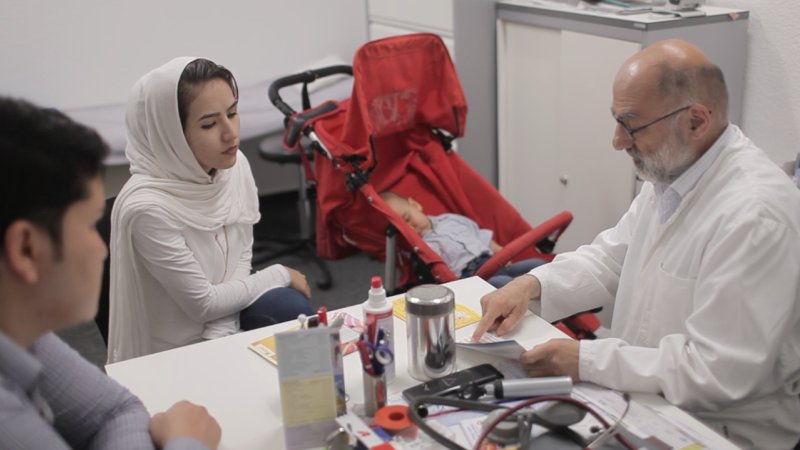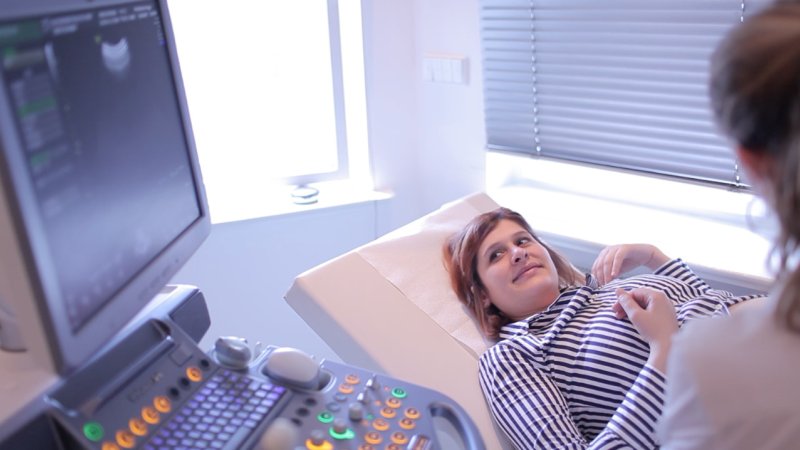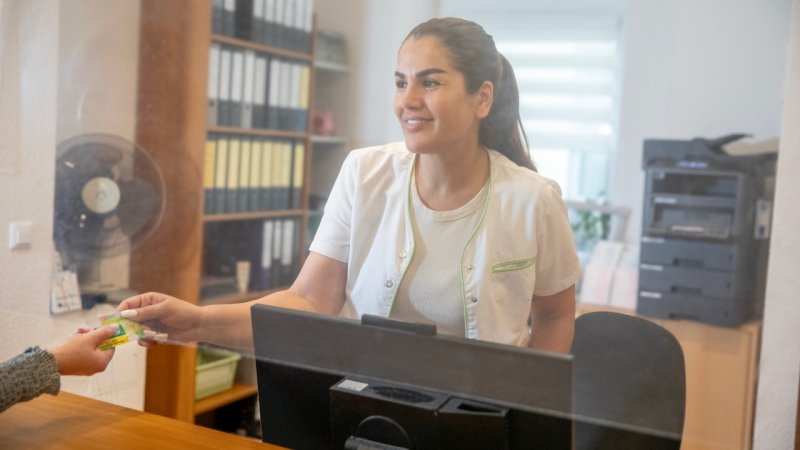
In Germany, vaccination isn’t compulsory, but strongly advised by all health authorities. If you are unsure what to do, you can ask your doctor for help, or base your decision on the German vaccination system and its specific recommendations.
Depending on the country you grew up in, you might already have been vaccinated against certain diseases. However, these illnesses might not be prevalent in Germany at all. Instead, German doctors might recommend vaccinations against other diseases. Even if you are an adult, you might, therefore, have to get vaccinated again. If you are unsure about this, ask your doctor about vaccinations for adults next time you have a medical appointment. You can learn more about the vaccines children and adolescents need in our chapter “Vaccination for Children and Adolescents”.
For those who reside in Germany, the German Vaccination Commission recommends immunisation against the following diseases: Tetanus, diphtheria, Whooping Cough (pertussis), Haemophilus Influenzae b (Hib), Polio (poliomyelitis), Hepatitis B, Pneumococcus (Streptococcus pneumoniae), Rotavirus, Meningococcus C (Neisseria meningitidis), Measles, Mumps, Rubella, Chickenpox (varicella), HPV (human papillomavirus) and COVID-19. (as of May 2023).
Please note: Vaccination against measles is compulsory for residents of communal accommodation facilities. You can find out more in our chapter "Refugee accommodation centres".
For elderly people and pregnant women, the Vaccination Commission recommends inoculation against the flu (influenza).
During the COVID-19 pandemic, vaccination against the coronavirus was one of the most important and highly recommended vaccinations. STIKO has included the COVID-19 vaccination in its vaccine recommendation list (as of January 2024). This includes a basic immunisation (three vaccinations or, if you have been infected and recovered, two vaccinations) for adults and booster vaccinations for at-risk groups every 12 months.
The STIKO also recommends vaccination against Mpox for adults after close skin contact with people infected with Mpox (Monkey Pox). During an Mpox outbreak, STIKO recommends that people with multiple, frequently changing sexual partners get vaccinated as a protective measure (as of December 2023).
If you live in an area where tick-borne encephalitis (TBE) is prevalent and spend a lot of time outside, inoculation against TBE is highly recommended by the Vaccination Commission. Tick-borne encephalitis is a viral disease which leads to inflammation of the brain, the meninges and the spinal cord. The virus is most often spread by ticks.
You may need and be prescribed further vaccinations when you want to travel abroad. Find out more on tropeninstitut.de.
In order to immunise you against diseases, your doctor hast to follow different vaccination patterns. Sometimes you might have to be vaccinated several times within a specific period of time. Basic immunisation, which applies to children between 6 and 23 weeks, consists of four part vaccinations (G1 to G4). Once this basic inoculation has been carried out, it needs to be boosted again once the child has reached age 2, and later on at age 17. However, additional boosts might be necessary at a later stage. You can find the recommended schedule of the Vaccination Commission in 20 languages at the rki.de.
When you are vaccinated for the first time in Germany, you will receive a yellow booklet which is called “vaccination record” (“Impfpass”, “Impfausweis” or “Impfbuch”). All your inoculations will be recorded in this booklet, which helps you keep track of the immunisation schedule. You should bring your vaccination record along to all your medical appointments.
Along with an “Imfpass”, you can also an additional record booklet for paediatric medical exams (“Kinder-Untersuchungsheft” or “Gelbes Heft”) for your child. Until your child reaches age 6, all of their medical appointments and tests (U1 to U9) will be documented in this booklet. You receive this booklet shortly after childbirth from the birth clinic or midwife. If you have lost your child’s record booklet or haven’t received one yet, ask your doctor’s office for help.
All public health insurance companies pay for the vaccinations recommended by the Vaccination Commission. If you are at a higher risk of infection because of your profession, your employer has to pay for any specific vaccinations you may need. That is the case, for instance, for those working in kindergartens.
If you are travelling abroad and certain vaccinations are mandatory or there is an increased risk of certain diseases, you can ask your health insurance company whether they will pay for the necessary vaccinations. For example, you may be entitled to travel vaccinations if you need to stay abroad for work or education. If you are travelling for personal reasons, it depends on your health insurance provider whether they will cover the cost of vaccinations. If they don’t, you will have to bear the costs yourself. You can find multilingual information in this regard on the website of the Robert Koch Institute.
In nurseries, elementary schools, holiday camps or other types of shared accommodation, many have to share limited spaces. In order to protect individuals from contagious diseases, special regulations are put in place. Infected individuals are obliged to inform the relevant staff, so that further spread of infection to others can be avoided. Infected children cannot go to kindergarten or school. You can find more information in multiple languages on rki.de.
The Permanent Vaccination Commission (“Ständige Impfkommission” or “STIKO”), which is made up of various medical experts and is associated with the Robert Koch Institute (RKI), regularly publishes recommended vaccination schedules in more than 20 languages along with other vaccine-related information leaflets. You can find more information about common diseases and their pathogens in 6 different languages on infektionsschutz.de. In addition, the Robert Koch Institute offers a lot of information in various languages. If you can read German, you can also take a look at the information offered on impfen-info.de, which is run by the Federal Agency for Health Education (BZgA). There you will also find a few explanatory videos about the vaccination in Germany.
Apart from vaccination, proper hygiene can also help you prevent contagious disease. To protect yourself and others, it is important to pay attention during washing your hands, coughing, proper hygiene in kitchen and bathroom and hygiene in interacting with animals. You can find more comprehensive information (in German) at infektionsschutz.de.
The permanent Vaccination Commission (STIKO) regularly publishes up-to-date inoculation schedules in 20 different languages.
Here you can find multilingual health-related information which can help you better communicate with your doctor.
Useful tips and information on health-related issues for asylum seekers in Germany.



